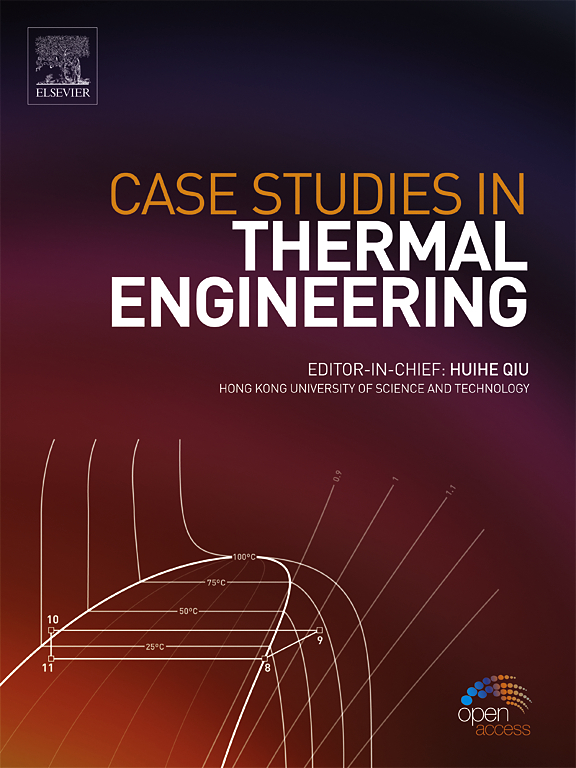Adjustment algorithm of damper openings of tangentially fired boilers based on secondary air distribution
IF 6.4
2区 工程技术
Q1 THERMODYNAMICS
引用次数: 0
Abstract
In the design of tangentially fired boilers, because of the limitations of the occupied area and on-site space, the structural relationship between the windbox of the secondary air pipe and the burner nozzle is the main pipe and the parallel branch pipe. The distribution of secondary air flow in each layer of the burner nozzle is not uniform when the boiler is running at peak-shaving operation. Therefore, after the distribution method of secondary air flow is determined, the adjust of air flow through the precise adjustment of secondary air damper opening is necessary. An adjustment model of secondary air damper opening under a hot condition is established through the effective coupling of the Newton–Raphson descent iteration method and a three-dimensional numerical simulation method. For different secondary air distribution objectives, precise adjustment of secondary air damper opening can be achieved through a few times of numerical simulation calculation using this model. Given the secondary air pipe of a 350 MWe supercritical tangentially fired boiler as the research object and two secondary air distribution objectives as examples, the feasibility and accuracy of the model are verified by realizing precise adjustment of damper openings.
基于二次配风的切向燃烧锅炉风门开度调节算法
在切向燃烧锅炉的设计中,由于受占地面积和现场空间的限制,二次风管风箱与燃烧器喷嘴之间的结构关系为主管与平行支管。锅炉在调峰运行时,燃烧器喷嘴各层二次风量分布不均匀。因此,在确定二次风量的分布方式后,需要通过精确调节二次风阀的开度来调整风量。通过牛顿-拉斐逊下降迭代法和三维数值模拟法的有效耦合,建立了热态下二次风风门开度的调节模型。针对不同的二次配风目标,利用该模型通过多次数值模拟计算即可实现二次风阀开度的精确调节。以 350 MWe 超临界切向燃烧锅炉二次风管为研究对象,以两种二次配风目标为例,通过实现风门开度的精确调节,验证了模型的可行性和准确性。
本文章由计算机程序翻译,如有差异,请以英文原文为准。
求助全文
约1分钟内获得全文
求助全文
来源期刊

Case Studies in Thermal Engineering
Chemical Engineering-Fluid Flow and Transfer Processes
CiteScore
8.60
自引率
11.80%
发文量
812
审稿时长
76 days
期刊介绍:
Case Studies in Thermal Engineering provides a forum for the rapid publication of short, structured Case Studies in Thermal Engineering and related Short Communications. It provides an essential compendium of case studies for researchers and practitioners in the field of thermal engineering and others who are interested in aspects of thermal engineering cases that could affect other engineering processes. The journal not only publishes new and novel case studies, but also provides a forum for the publication of high quality descriptions of classic thermal engineering problems. The scope of the journal includes case studies of thermal engineering problems in components, devices and systems using existing experimental and numerical techniques in the areas of mechanical, aerospace, chemical, medical, thermal management for electronics, heat exchangers, regeneration, solar thermal energy, thermal storage, building energy conservation, and power generation. Case studies of thermal problems in other areas will also be considered.
 求助内容:
求助内容: 应助结果提醒方式:
应助结果提醒方式:


